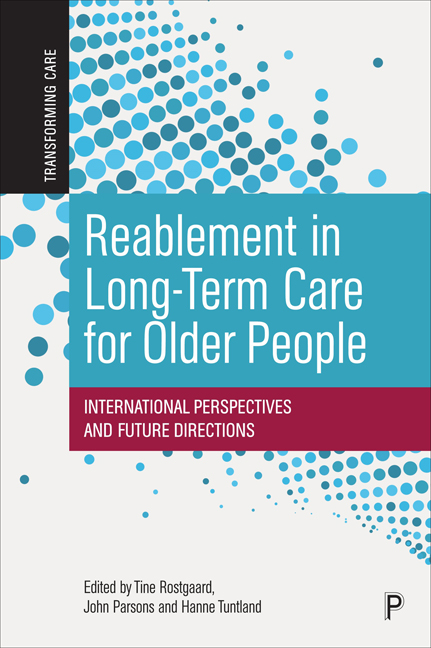7 - Reablement as a cost-effective option from a health economic perspective
Published online by Cambridge University Press: 18 January 2024
Summary
Introduction
Reablement has been seen as an answer to a number of enduring challenges in long-term care for older people, including a means to promote health among older people as well as to reduce the societal costs related to a fast-growing older population (Aspinal et al, 2016). Reablement has the potential to be a cost-effective option when resources need to be prioritised in health and social care. In any organisation, or health and social care system, resources are scarce; consequently, choices need to be made concerning which interventions to implement. When considering whether to implement reablement as an alternative to compensatory home care, the choice must also take into account what it costs and whether it is more costly than the usual approach, given the results that it may produce.
Health economic methods can guide such choices by considering both the effects of different interventions and their related costs (Drummond et al, 2005). Ultimately, a health economic evaluation can guide clinicians as well as decision-makers on which intervention yields the most health benefits given the existing resources. Therefore, in order to reflect over the existing evidence base, identify knowledge gaps and to guide policy making and future research, it is important to summarise the health economic literature and look into what it may teach us on the cost-effectiveness of reablement.
Following an introduction to health economic evaluation methods, the aim of this chapter is to provide a summary of existing evidence on the cost-effectiveness of reablement, based on a brief literature review, and to discuss health economic perspectives of reablement from a clinical and future research perspective.
Health economic evaluation methods
Health economic evaluation refers to a set of methods that can be used to identify the most efficient use of resources by considering both health effects and costs (Drummond et al, 2005). In relation to any intervention, a cost-analysis can be conducted, that is, to evaluate which costs are involved in the delivery of an intervention, as well as how other costs are affected by the intervention. With regards to reablement, the costs for the reablement period can be considered the intervention costs whereas savings related to reduced need for home care or special housing could be considered ‘other costs’. However, both costs and effects need to be considered for a full economic evaluation.
- Type
- Chapter
- Information
- Reablement in Long-term Care for Older PeopleInternational Perspectives and Future Directions, pp. 137 - 160Publisher: Bristol University PressPrint publication year: 2023



